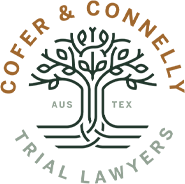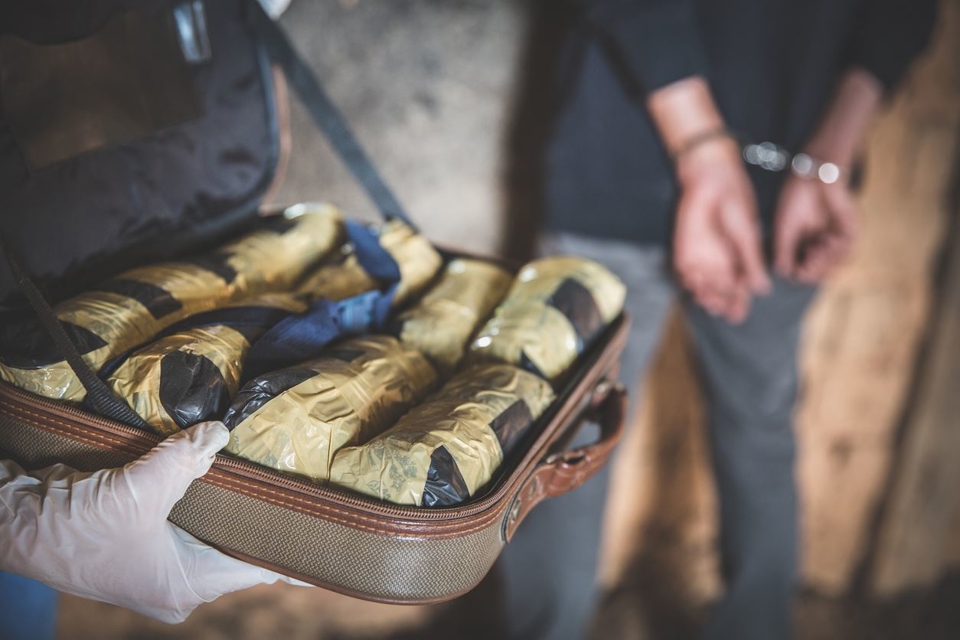We have all heard the saying “if it looks like a duck, walks like a duck, and quacks like a duck, then it probably is a duck” – but can the same be said for marijuana? Texas courts have routinely held that the odor of marijuana alone is sufficient probable cause to justify a warrantless search in regards to marijuana arrests in Texas. However, the language of the Texas Hemp Bill (“hemp bill”) contemplates that odor alone is not sufficient probable cause for officers to seize alleged marijuana or to make an arrest for possessing alleged marijuana. After being arrested, the process of finding a marijuana lawyer in Austin or other surrounding areas can be a stressful situation that inhibits the lives of those arrested. But is this law justly respecting probably cause? The probable cause standard of the Texas Hemp Bill suggests that courts have erred in continuing to hold that the odor of marijuana alone justifies a warrantless search of a vehicle. The hemp-bill standard suggests that courts should adopt a “odor-plus” standard that requires additional evidence – beyond odor – that a substance is marijuana to justify a warrantless search.
In 2019, the Texas Legislature adopted what is commonly referred to as “the Texas Hemp Farming Act” (here in after referred to as The Act) – which codified the regulation of the cultivation of hemp in Texas. Act of May 22, 2019, 86th Leg., R.S., ch. 764, 2019 Tex. Gen. Laws 2085. Amongst the various provisions of The Act, the definitions of “a controlled substance” and “marijuana” were amended under the Texas Health and Safety Code to exclude “hemp.” “Hemp” is defined as “the plant Cannabis Sativa L. and any part of that plant, including the seeds of the plant and all derivatives, extracts, cannabinoids, isomers, acids, salts, and salts of isomers, whether growing or not, with a delta-9 tetrahydrocannabinol concentration of not more than 0.3 percent on a dry weight basis.” Tex. Agric. Code Ann. § 121.001. Although the possession of a usable quantity of marijuana is still an offense under § 481.121 of the Texas Health and Safety Code, cannabis with a delta-9 tetrahydrocannabinol concentration of less than .3 percent is excluded from the definition of marijuana. Tex. Health and Safety Code § 481.121. These changes have caused issues with the enforcement of § 481.121 because no amount of training and experience will allow officers to differentiate legal hemp from illegal marijuana through the odor itself. The inability to differentiate between the odor of legal hemp and illegal marijuana has provided the basis for criminal defense defendants in Texas to start challenging whether the odor of marijuana (or hemp?) alone still provides probable cause necessary to conduct a warrantless search.
This trend of criminal defendants challenging odor of marijuana searches has been addressed by various appellate courts in Texas. However, the Texas Court of Criminal Appeals has not weighed in on the issue as of the date of this article. Since January of 2023, the Second, Fourth, Fifth, Seventh, Eighth, and the Twelfth Courts of Appeals have all ruled on cases involving “odor of marijuana” based searches, holding that the odor of marijuana alone still provides probable cause for a warrantless vehicle search after the passage of the Texas Hemp Bill. See Guerra v. State, No. 02-22-00133-CR, 2023 WL 6475636 (Tex. App.—Fort Worth Oct. 5, 2023, pet. ref’d); Isaac v. State, 675 S.W.3d 116 (Tex. App.—San Antonio 2023, no pet.); State v. Gonzales, 676 S.W.3d 261 (Tex. App.—Dallas 2023, no pet.); Thacker v. State, No. 07-23-00368-CR, 2024 WL 3405900 (Tex. App.—Amarillo July 12, 2024, no pet.); West v. State, No. 07-24-00154-CR, 2024 WL 4779107 (Tex. App.—Amarillo Nov. 13, 2024, no pet.); JAYLON WILLIAMS-CRANE, Appellant, v. THE STATE OF TEXAS, Appellee., No. 08-24-00050-CR, 2024 WL 5179924 (Tex. App.—El Paso Dec. 19, 2024, no pet. h.); Moffitt v. State, No. 12-23-00109-CR, 2023 WL 6631852 (Tex. App.—Tyler Oct. 11, 2023, no pet.). Almost all of these decisions involve a warrantless search of a vehicle on the basis of the odor of marijuana alone.
Criminal Defense Case Involved in the Hemp Act and Legal Proceedings:
In many of these decisions, the courts rely on the analysis of the impact of the Texas hemp law on probable cause searches from the Cortez case. In Cortez, the defendant was indicted for possession of methamphetamine. Cortez v. State, No. 05-21-00664-CR, 2022 WL 17817963, at *1 (Tex. App.—Dallas Dec. 20, 2022, pet. filed). Cortez was arrested after an officer initiated a traffic stop on a vehicle that was observed driving erratically and violating several traffic laws. Id. After contacting Cortez, the officer smelt the odor of marijuana coming from the vehicle. Id. The search of Cortez’s vehicle was based entirely on the officer’s smell of marijuana. Id. at *3. After discussing the impact of the Federal Agricultural Improvement Act and the Texas Hemp Farming Act’s influence on delineating between hemp and marijuana, the Court began its analysis of relevant law revolving around warrantless searches of vehicles. Of note, the Court outlined how marijuana possession is inherently criminal in nature, and how its odor may evidence criminal activity. Id. at *7. Thus, a strong odor of marijuana from a small, enclosed area, such as a vehicle, provides the probable cause necessary for an officer to conduct a warrantless search of a vehicle. Id. Acknowledging that the “touchstone” of the Fourth Amendment is reasonableness, the Court outlines how such reasonableness is not governed by perfection, errors of fact or law, and post-arrest discovery of the lawful nature of substances discovered during a warrantless search of a vehicle. Id. Thus, in concluding that the odor of marijuana provides the probable cause necessary to conduct a warrantless search of a vehicle, the court determined that “a reasonable, even if ultimately erroneous conclusion by an officer on the scene as to the identity of [a] substance, would be permitted under the Fourth Amendment.” Id.
The court’s holding in Cortez “affirmed the validity of the line of cases holding that the odor of marijuana alone is sufficient to constitute probable cause to search a defendant’s person, vehicle, and objects within the vehicle, after the enactment of the Texas Hemp Farming Act.” Gonzales, 676 S.W.3d at 267. Agreeing with its sister court, the Court in Thacker opined “the probable cause standard does not demand certainty; it is met so long as there is a ‘fair probability’ that evidence of criminal activity will be found.” Thacker, No. 07-23-00368-CR, 2024 WL 3405900, at *3. Again, this reference to the holding in Cortez is repeated in Isaac, Guerra, Williams-Crane, and Moffitt. See Isaac, 675 S.W.3d at 119; Guerra, No. 02-22-00133-CR, 2023 WL 6475636, at *12: Williams-Crane v. State, No. 08-24-00050-CR, 2024 WL 5179924, at *5; Moffitt, No. 12-23-00109-CR, 2023 WL 6631852, at *5.
The Fifth Court of Appeals in Gonzales, although facing criminal charges for marijuana, provided an additional statutory rationale in support of its determination that the odor of marijuana provides probable cause to conduct a warrantless search of a vehicle. The Court found that the Cortez decision was supported by the plain language of the hemp bill, which indicates that the legislature did not intend to infringe on the enforcement of laws regulating marijuana and the probable cause standard. Gonzales, 676 S.W.3d at 268. The Court cited the text of the Texas Hemp Farming Act, which amended the text of the Texas Agriculture Code. Under § 122.358, the text provides that “this subchapter does not limit or restrict a peace officer from enforcing to the fullest extent the laws of this state regulating marijuana and controlled substances, as defined by § 481.002, Health and Safety Code.” Other courts have endorsed the idea that the plain text of § 122.358 supports the conclusion that the odor of marijuana alone provides probable cause for a warrantless search. For example, the Court in Thacker stated “[a]dditionally, we note that the provisions of the Texas Hemp Farming Act reveal that the Legislature did not intend for the legalization of hemp to impede the enforcement of laws regulating marijuana.” Thacker, No. 07-23-00368-CR, 2024 WL 3405900, at *3.
Although the court in Gonzales cited the language of the hemp bill as an additional basis supporting its conclusion that the odor of marijuana alone provides probable cause for a warrantless search, the language of § 122.358 cuts against this notion. Under Section 122.358 of the Texas Agriculture code, there are two subsections that specifically discuss probable cause to believe that a substance is marijuana. First, Section 122.358(a) states, “unless a peace officer has probable cause to believe the plant material is marijuana, the peace officer may not seize the plant material or arrest the person transporting the plant material.” Tex. Agric. Code Ann. § 122.358(a). Second, subsection c of the same section states that if “a peace officer has probable cause to believe that a person transporting hemp in this state is also transporting marijuana … the peace officer may seize and impound the hemp.” Tex. Agric. Code Ann. § 122.358(c). If we apply the probable cause standard from the Cortez case to this statute, officers would virtually always have probable cause to seize hemp and arrest the person transporting the hemp on the basis of odor alone because the odor of legal hemp is indistinguishable from the odor of illegal marijuana. This reading is untenable. The statute therefore must require evidence beyond odor for officers to seize a substance or make an arrest.
How The Hemp Act Affects Citizens of Austin and Texas:
If officers must observe factors other than the odor of marijuana before they may seize plant materials or make an arrest, officers cannot justify a search of a vehicle based solely on an odor that would emit from both hemp and marijuana. If the legislature intended to require evidence other than odor for officers to conduct warrantless seizures and criminal arrests, the same standard should be applied to warrantless searches. Until the Texas Court of Criminal Appeals addresses the inconsistency of the courts’ holdings with the language of the hemp hill, courts will continue to apply a warrantless search standard that is at odds with the plain text of the hemp bill. The courts can resolve this inconsistency by amending the probable cause standard for a warrantless search to an “odor-plus” standard. The “odor-plus” standard would hold that odor of marijuana itself is insufficient to justify a warrantless search, but that odor with additional evidence—such as incriminating statements from the possessor of the substance—would provide probable cause for a warrantless search. The “odor-plus” standard would bring the standard for a warrantless search in line with the standard to conduct a seizure or arrest for possessing marijuana under the hemp bill.
Thomas Zapata is a student at The University of Texas School of law graduating in May 2025. He has been a law clerk at Cofer & Connelly since 2023 and was formerly a staff editor for the American Journal of Criminal Law.
Megan “Kanga” Rue is a criminal defense attorney based in Austin, Texas. She is an attorney with Cofer and Connelly, PLLC, and was previously a public defender with the Travis County Public Defender's Office. She has an interest in litig a tin g s e a r c h a n d s eiz u r e is s u e s, p a r tic ula rly in v olvin g n e w d e v elo p m e n t s in t h e la w. In h e r f r e e tim e, s h e c h air s t h e local chapter of the National Lawyers Guild.






